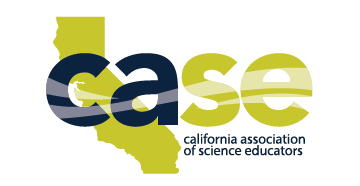
Short Courses
REGISTRATION IS NOW OPEN

Add Short Course, Field Tour and Sound of Music to your Conference Experience.
SHORT COURSES
Want to dig deeper? Excited to learn from seasoned experts in the field? Wish you could have a guaranteed seat in the room? Do you enjoy a smaller session with more presenter interaction? Then conference short courses are calling your name!
CSTA is proud to present an amazing line up of fifteen short courses for this year's conference. There short course are designed to help you dig deeper into NGSS, engineering design, and more. Each short course's duration is three to six hours, giving you the chance to really interact and make sense of the material.
Short courses are ticketed events, guaranteeing you a seat in the room and relevant hand-outs. You will have hands-on experiences that are designed to help you envision relevant use in your classroom. Many short courses will also provide you with sample materials that are ready for use. Be sure to sign up for these soon—we expect these short courses will sell out fast this year!
If you are in need of support by your district, you can remind your administrator that that the District's Local Control Accountability Plan (LCAP) Priority #2 supports the implementation of the state's academic standards. CSTA's Conference on Science Education will provide you with short courses that will help you with this. All short courses support the California Next Generation Science Standards (NGSS), the California Common Core State Standards, or both. The short course descriptions below include the following information:
- title and brief description
- ticket price
- grade level that the course is best suited for
- the science that is the focus of the presentation
- the emphasis (up to three) of the course
- the name of the lead presenter and their affiliation
Friday, October 21 - 2:30 pm - 5:30 pm
SC1: Fostering a Science-Driven Language and Literacy Learning Environment
Authentic communication is the best way to learn language and content. Learn to strategically include integrated and designated ELD instruction into 3-D science lessons. Engage in a hands-on science and language learning experience, and receive a toolkit for developing science/language acquisition lessons that meet the rigors of NGSS and the California ELA/ELD Framework. [OUSD - Conference Partner Presentation]
- Tickets: $15
- Grade Level: Upper Elementary/Middle School (Grades 3-8)
- Science & Emphasis: Physical Science; 3-Dimensional Learning; Common Core-ELA; English Learners
- Presenters: Diana Velez, K-5 Specialist, Lawrence Hall of Science U.C. Berkeley and Claudio Vargas, Coordinator, Science Programs, Oakland Unified School District
SC2: Using Hands-On Performance Assessment in 6-8 Classrooms: Assessing Student Mastery of the Science Practices, DCIs, and CCSS-ELA
Explore hands-on performance assessment and its relationship to students' mastering Common Core and Next Generation Science Standards. Engage in a hands-on task, use this protocol to develop tasks of your own, and take home a sample student set-up.
- Tickets: $30
- Grade Level: Middle School (Grades 6-8)
- Science & Emphasis: Life Science/Biology; Pedagogy; Preservice; SEPs
- Presenters: Deborah Tucker, Science Education Consultant and Grant Gardner, President, Assessment Services, Inc.
SC3: Introduction to Teaching Science for Social Justice
This short course will introduce teachers to the art of social justice teaching. Through interactive activities, we will share specific practices that have been successfully used in our science classes. Teachers will leave with new skills they can easily implement.
- Tickets: $10
- Grade Level: Middle School/High School (Grades 6-12)
- Science & Emphasis: All Sciences; Classroom Management/Engagement; DCIs; Pedagogy
- Presenters: Amber Lancaster, Science Teacher, June Jordan School for Equity and Lenore Kenny, Science Teacher, June Jordan School for Equity
SC4: Focus on Practices: Math and Computational Thinking, Your New Favorite Practice
Math in science is more than just graphing. Have fun and learn how this practice not only stands on its own but can be a powerful ally to strengthen student facility with all of the other practices and crosscutting concepts. [CA-NGSS Early Implementer - Conference Partner Presentation]
- Tickets: $20
- Grade Level: K-12
- Science & Emphasis: All Sciences; 3-Dimensional Learning, Crosscutting Concepts; SEPs
- Presenters: David Tupper, CaMSP Project Director/TOSA, San Diego COE and Jeremiah Potter, MS Science/NOYCE Master Teacher, Pacific Beach Middle School NGSS Early Implementation Initiative/San Diego USD
SC11: Project Prototype (CAMSP Cohort 10) NGSS Science and Engineering Lessons for Secondary Teachers
Join us for a look at NGSS instruction across three school districts participating in Project Prototype (CaMSP Cohort 10 grant). Actively explore innovative ideas for your secondary classroom. Leave the workshop with strategies and implementation ideas! [K-12 Alliance - Conference Partner Presentation]
- Tickets: $20
- Grade Level: Middle School/High School (Grades 6-12)
- Science & Emphasis: STEM/STEAM; Pedagogy, Preservice Teacher Education, SEPs
- Presenter: David Budai, Content Specialist: Elementary Science, Coachella Valley USD
Saturday, October 22 - 8:30 am - 11:30 am
SC5: A View from the Classroom of the NGSS Scientific Practices
Explore how to implement three NGSS Science Practices. Beginning with an engaging phenomenon, you will use tools to ask questions, plan investigations and represent a conceptual model. You will leave with a concrete plan for implementing these practices.
- Tickets: $10
- Grade Level: Upper Elementary/Middle School/High School (Grades 3-12)
- Science & Emphasis: Physical Science; 3-D Learning, Pedagogy, SEPs
- Presenters: Ingrid Salim, Science Teacher, Davis Senior High School and Kathleen Gill, Science Teacher, Davis Joint Unified School District
SC6: Engineer Your Own Working Microscope with Everyday Materials
This Short Course has been cancelled. This will be presented in a 90-minute workshop format on Friday, 10/21, 12:30 pm - 2:00 pm.
Use a multimedia story about a $1 microscope developed to diagnose diseases as inspiration to learn how to engineer a lighted microscope. Experience how engineering fits into three-dimensional learning through a sequence that targets life science and physical science goals.
- Tickets: $30
- Grade Level: Middle School(Grades 6-8)
- Science & Emphasis: Engineering; 3-D Learning, Pedagogy, Technology
- Presenters: Kirk Brown, Director of Science and STEM Integration, San Joaquin County Office of Education and Andrea Aust, Science Education Manager, KQED Public Broadcasting
SC7: Integrating Science, ELA, and ELD: It All Works Together
Participate in a learning sequence infusing ELD practices and strategies throughout a three-dimensional NGSS learning segment using a 5E inquiry lesson design. Resources include planning templates. [CA-NGSS Early Implementer - Conference Partner Presentation]
- Tickets: $25
- Grade Level: Upper Elementary/Middle School (Grades 3-8)
- Science & Emphasis: Earth/Space Science; 3-D Learning, English Learner, Pedagogy
- Presenters: Barbara Woods, Curriculum Specialist, Galt Elementary School District and Neika Estey, Teacher, 6th Grade, River Oaks Elementary
SC8: Creating GIS Maps and Story Maps to Understand Intersections of Pollution and Income
Work through an inquiry based lesson around the question: "Are low-income minorities disproportionately affected by air pollution?" Using free online GIS programs create maps and presentations with data regarding a specific community currently experiencing pollution problems. Bring a laptop to access all applications. iPads will only allow access to some applications.
- Tickets: $10
- Grade Level: Middle School/High School (Grades 6-12)
- Science & Emphasis: Earth/Space Science; 3-D Learning, Crosscutting Concepts; Technology
- Presenter: Laura Ruiz, Crenshaw Arts-Tech Charter High (CATCH)
SC9: Digging In: Year 2 Lessons Learned from the CA NGSS K-8 Early Implementation Initiative
Are you a teacher leader, administrator, or professional development provider leading the implementation of the NGSS? This session is for you! Hear real stories about the successes and challenges of implementation and learn about tools and processes to help you. [CA-NGSS Early Implementer - Conference Partner Presentation]
- Tickets: $20
- Grade Level: Primary/Upper Elementary/Middle School (Grades K-8)
- Science & Emphasis: All Sciences; Leadership (coaching, site leadership, administrator, professional development)
- Presenter: Kathy DiRanna, Statewide Director, K-12 Alliance @ WestEd
Saturday, October 22 - 8:30 am - 11:30 am; and 3:00 pm - 6:00 pm
Part 1: 8:30 am - 11:30 am Part 2: 3:00pm - 6:00pm
SC10: What Happened to My Unit On Light?
Explore a sequence of 3-dimensional instruction on light aligned to NGSS. Advance from K through 8th, engaging in activities built from a framework that attends to Common Core literacy, Science and Engineering Practices, Crosscutting Concepts and Disciplinary Core Ideas.
This short course is a total of 6 hours, split between 2 sessions. Times are from 8:30 am - 11:30 am and 3:00 pm - 6:00 pm.
- Tickets: $25
- Grade Level: Primary/Upper Elementary/Middle School (Grades K-8)
- Science & Emphasis: Physical Science; 3-D Learning
- Presenters: Arthur Beauchamp, Senior Director of Professional Learning, UC Davis School of Education and Cynthia Passmore, Associate Professor, UC Davis
Saturday, October 22, 3:00 pm - 6:00 pm
SC12: How to Help School Districts Decide the Middle School Question
Learn the difference between integrated and coordinated science. Engage in processes for making informed decisions about the middle school question of whether science should be integrated or discipline specific. Consider a hybrid model. [K-12 Alliance - Conference Partner Presentation]
- Tickets: $20
- Grade Level: Middle School (Grades 6-8)
- Science & Emphasis: All Sciences; Leadership (coaching, site leadership, administrator, professional development)
- Presenter: Jo Topps, Regional Director, K-12 Alliance/WestEd
SC13: Science and Literacy in Primary Grades (K-2): A Win-Win for both NGSS 3-D Science and CCSS ELA
This primary grade three member “Early Implementer” team will share Earth science learning sequences designed to deepen understanding for K (weather), 1 (sun, moon, and stars) and 2 (landforms) linked to CCSS ELA using note booking and ELA scaffolding strategies. [CA-NGSS Early Implementer - Conference Partner Presentation]
- Tickets: $10
- Grade Level: Primary (Grades K-2)
- Science & Emphasis: Earth/Space Science; 3-D Learning, Classroom Management/Engagement; Common Core-ELA
- Presenter: Karen Cerwin, Regional Director, K-12 Alliance/WestEd
SC14: Chemistry Experiments and Experiences (ChemEx2)
Experience multi-use experiments to foster student learning. Improve your students' ability to argue a claim from evidence/observations. Revisit experiments for deeper understanding. These experiments, designed and vetted by Stanford University Department of Chemistry, are aligned with NGSS and CCSS.
- Tickets: $35
- Grade Level: Primary/Intermediate/Middle School
- Science & Emphasis: Chemistry; 3-D Learning; Common Core-ELA; DCIs
- Presenters: Sally Seebode, Educator, San Mateo High School; Katrina Rotter, Science Teacher, Lowell High School
SC15: Using Phenomenon as a Tool for Integrating CA NGSS Middle School Instruction
Participants will experience using phenomena to create a coherent and integrated CA NGSS three-dimensional unit that provides equitable access to science content in 6-8th grade classrooms. [CA-NGSS Early Implementer - Conference Partner Presentation]
- Tickets: $10
- Grade Level: Middle School (Grades 6-8)
- Science & Emphasis: Integrated Science; 3-D Learning
- Presenter: Christy Compton Hall, Science Resource Teacher, San Diego USD Office of Leadership & Learning
Quick Links
Exhibit Partner Package
Opening Soon
Join us at the 2025 California Science Education Conference, the premier event for science educators across California! This gathering is your chance to showcase your products, engage with educators, and maximize your impact through our exclusive Partner Program.

